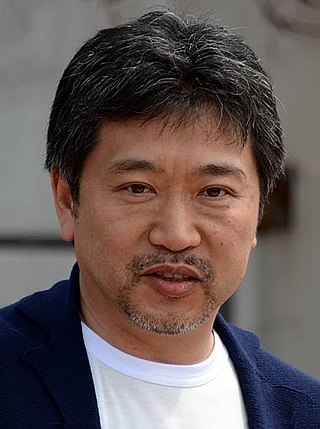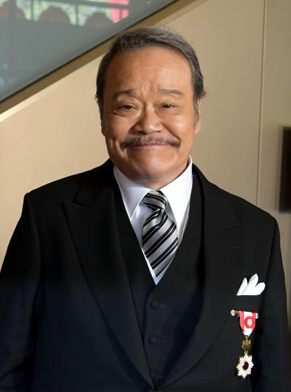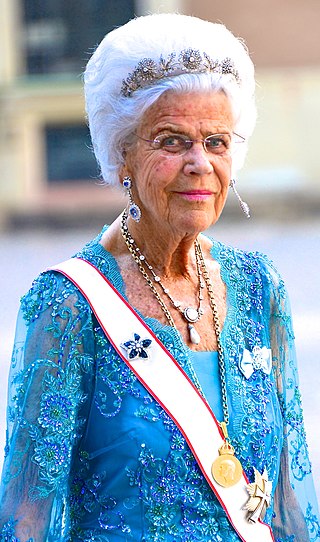
The Golden Globe Award for Best Motion Picture – Drama is a Golden Globe Award that has been awarded annually since 1944 by the Hollywood Foreign Press Association (HFPA). Since its institution in 1943, the Hollywood Foreign Press Association is an organization of journalists who cover the film industry in the United States, but are affiliated with publications outside North America.

Hirokazu Kore-eda is a Japanese film director, producer, screenwriter, and editor. He began his career in television and has since directed more than a dozen feature films, including Nobody Knows (2004), Still Walking (2008), and After the Storm (2016). He won the Jury Prize at the 2013 Cannes Film Festival for Like Father, Like Son and won the Palme d'Or at the 2018 Cannes Film Festival for Shoplifters.
The NATO Medal is an international military decoration which is awarded to various militaries of the world under the authority of the North Atlantic Treaty Organization (NATO). It is manufactured by Eekelers-Centini Intl, of Hemiksem, Belgium.
The Blue Ribbon Awards are film-specific prizes awarded solely by movie critics and writers in Tokyo, Japan, established in 1950 by The Association of Tokyo Film Journalists, established under the name of the "Association of Tokyo Film Journalists Award", which was formed mainly by film reporters from the Yomiuri Shimbun, Asahi Shimbun, and Mainichi Shimbun. Currently the The Association is made up of film reporters from seven sports newspapers in Tokyo: Sports Hochi, Sankei Sports, Sponichi, Daily Sports, Tokyo Sports, Tokyo Chunichi Sports, and Nikkan Sports.

Toshiyuki Nishida is a Japanese actor. He has won two Japanese Academy Awards for best actor, for The Silk Road (1988) and Tsuribaka Nisshi 6 (1993). He has also won the Blue Ribbon Award for Best Actor for Get Up! and Tsuribaka Nisshi 14 (2003). Outside Japan he is best known for his role as Pigsy in Monkey.

Kunie Tanaka was a Japanese actor. Tanaka first made a name for himself as the lecherous antagonist of the Wakadaishō series (1961–1981) of films. He is also well-known for his roles in Kinji Fukasaku's yakuza films, namely the Battles Without Honor and Humanity series (1973–1974), and for starring in the Kita no Kuni Kara (1981–2002) television series.
The Sting of Death is a 1990 Japanese film directed by Kōhei Oguri and based on the novel by Toshio Shimao. It tells the story of a writer with a wandering eye and his jealous wife. The film was selected as the Japanese entry for the Best Foreign Language Film at the 63rd Academy Awards, but was not accepted as a nominee.

H. M. The King's Medal, earlier known as the Court Medal, is a Swedish honour that may be bestowed upon Swedish and foreign citizens. The medal was created in 1814 and is awarded in different sizes in gold and silver with chain or ribbon. This medal is not awarded in classes but in sizes. The 12th size is the largest and is worn around the neck on a chain or ribbon. The 8th and 5th size are worn from the left breast suspended by a ribbon, after the Seraphim Medal.

Onimasa is a 1982 Japanese film directed by Hideo Gosha. Based on the novel of Tomiko Miyao. It was Japan's submission to the 55th Academy Awards for the Academy Award for Best Foreign Language Film, but was not accepted as a nominee.
The Blue Ribbon Award for Best Actor is as part of its annual Blue Ribbon Awards for Japanese film, to recognize a male actor who has delivered an outstanding performance in a leading role.
The Blue Ribbon Award for Best Supporting Actor is as part of its annual Blue Ribbon Awards for Japanese film, to recognize a male supporting actor who has delivered an outstanding performance.
The Blue Ribbon Award for Best Film is a prize recognizing excellence in Japanese film. It is awarded annually by the Association of Tokyo Film Journalists as one of the Blue Ribbon Awards. Filmmakers Akira Kurosawa, Tadashi Imai and Mikio Naruse are among those who have received the award. Best Film winners Kagemusha (1980) and The Twilight Samurai (2002) also received an Academy Award nomination in the category of Best Foreign Language Film.
The Blue Ribbon Award for Best Supporting Actress is a prize recognizing an outstanding performance by a female supporting actress in a Japanese film. It is awarded annually by the Association of Tokyo Film Journalists as one of the Blue Ribbon Awards.
The Blue Ribbon Award for Best Director is a prize recognizing the work of a director of a Japanese film. It is awarded annually by the Association of Tokyo Film Journalists as one of the Blue Ribbon Awards.
The Blue Ribbon Award for Best Newcomer is a prize recognizing an outstanding performance by a newcomer in a Japanese film. It is awarded annually by the Association of Tokyo Film Journalists as one of the Blue Ribbon Awards.
The Blue Ribbon Award for Best Screenplay is a prize recognizing the work of a screenplay of a Japanese film. It was awarded annually by the Association of Tokyo Film Journalists as one of the Blue Ribbon Awards. It was lastly awarded in 1966 at the 17th Blue Ribbon Awards and discontinued.
The Blue Ribbon Award for Best Cinematography is a prize recognizing the work of a cinematography of a Japanese film. It was awarded annually by the Association of Tokyo Film Journalists as one of the Blue Ribbon Awards. It was lastly awarded in 1965 at 16th Blue Ribbon Awards and discontinued.
The Blue Ribbon Awards Special Award is a special prize. It is awarded irregularly by the Association of Tokyo Film Journalists as one of the Blue Ribbon Awards. It was firstly awarded in 1988 at 31st Blue Ribbon Awards.

Justice League: Gods and Monsters Chronicles is a 2015 animated superhero web series featuring Justice League characters from DC Comics. It first aired on June 8, 2015, on Machinima, a multi-channel network, and was developed by DC Entertainment, Warner Bros. Animation, and Blue Ribbon Content. The series serves as a companion to the animated film Justice League: Gods and Monsters. The first season consisted of three episodes and concluded on June 12.

100 Yen Love is a 2014 Japanese sports drama film directed by Masaharu Take and starring Sakura Ando. The film was released in Japan on December 20, 2014. It was selected as the Japanese entry for the Best Foreign Language Film at the 88th Academy Awards but it was not nominated.







